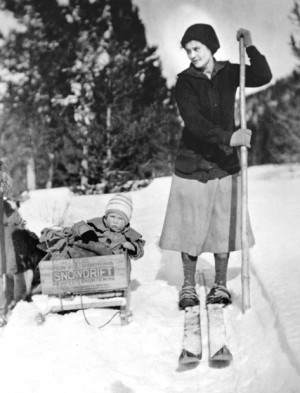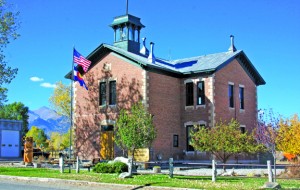by Candice Geier
In Colorado, bills for new laws and regulations often have a clause at the end of them. The clause states that if any petition is filed against the new regulation, the regulation will not take effect until approved by the people at the general election. The petition can object to the entire act or any item, section or part.
Preserving Colorado
In the transition to renewable energy and in the wake of the gulf oil spill, The Colorado Division of Wildlife and nine energy companies have come to several arrangements that will protect the state’s wildlife and land, including parts of the Colorado River. A total of 355,009 acres are expected to be preserved by multiple agreements which took over 18 months to negotiate. The participating companies to date are Exxon Mobil Corp., EnCana Oil and Gas (USA) Inc., Williams Production RMT, Antero Resources Piceance Corp., Marathon Oil Co., Noble Energy Inc., Black Hills Exploration and Production, Delta Petroleum and Gunnison Energy Corp. A total of 202,633 acres will be protected in Garfield and Mesa County. Exxon agreed to preserve 149,946 acres in and Rio Blanco County, the largest agreement made. An additional 2,400 acres will be preserved in Gunnison County. By negotiating with the Division of Wildlife, the companies are hoping to start drilling sooner and have gas wells approved quickly. The division is planning to work with many other energy companies throughout Colorado.
Ritter Appoints Weld County Judge
Gov. Bill Ritter has appointed a new Weld County district court judge in the 19th Judicial District. Todd Leslie Taylor of Greeley will be taking the judge’s seat on Aug. 22 in place of the Hon. Gilbert A Gutierrez, who is retiring. Taylor held a municipal judge’s seat in Gilcrest from 2000 until 2004. He was also a deputy district attorney for five years. Taylor has provided legal council in many different types of cases, ranging from family, criminal, civil, administrative, and non-profit corporation law. Taylor’s first term will last two years. After that, voters will decide if he stays another six years. His annual salary will be $128,598.
$1 Million Grant for The Colorado Division of Health Insurance
The federal government awarded a $1 million grant to the Colorado Division of Insurance (CDI) to prevent unfair insurance hikes. The Federal Affordable Care Act gave the U.S. Department of Health and Human Services the ability to provide the CDI, along with 45 other states and the District of Columbia. The funds are meant to not only insure consumers are protected, but also educate them. The division has plans to hire additional auditors to review insurance rate filings. An additional grant may be awarded next year.
Dry Counties
Medical marijuana dispensaries are governed locally and about 10 cities in Colorado plan to give voters the chance to decide on the issue, according to an article in the Denver Post. But, in almost 30 other cities the voters are not given the same opportunity, local city councils are taking the final say. House bill 1284, was designed to allow communities to individually decide on what is right for them, but did not mandate towns to let the voters decide. Instead, the bill said the local governments can do as they please concerning the dispensaries. A city council can limit the dispensaries, tax them, not allow any, allow some, or they can let the people choose. The article stated, in Loveland, when the city wanted to shut down the dispensaries already in place, the people lobbied for their right to vote. They won. The council decided in favor by a 7-2 vote.
A new public-private initiative agreement, signed in April, will allow state agencies to contract with non-profit companies. The state recognizes the ability of non-profit companies to receive funding from donations. Because of the law, the state now has the ability to partner with non-profits to provide additional cost-effective, public services during economically tough times.
The new “people first law” will allow the state to re-word laws concerning persons with disabilities, according to an article from the Associated Press. The state will modify existing laws to be more politically correct by eliminating terms such as “disabled” and replacing them with more specific terms, such as persons with autism or persons with a mental disability.
Another new law was passed that will allow people who receive public assistance the ability to obtain free identification documents. The law was created to reduce poverty by removing obstructions. The cost of an identification card will be waved if a person has a recommendation from a social services department.
Briefs
• Otero and Montrose County’s crops were devastated earlier this year by freezing temperatures, high winds and hail; Gov. Ritter has requested Disaster Designation from Agriculture Secretary Tom Vilsack, according to a press release from the governor’s office.
•Road construction has been approved for a 9 and a half mile stretch of US 285. The highway is just south of Saguache, between mile posts 77 and 87. The cost of digging up an inch of the road and resurfacing it will cost $6.7 million dollars which Colorado received from American Recovery and Reinvestment Act. According to the Colorado Department of Transportation, the state will receive over $503 million to repair Colorado roads.
•The Colorado statute regarding employers of convicted felons was modified. The statute is in place to protect employees with criminal backgrounds from discrimination in the workforce. It has been modified regarding court procedures during civil action cases. Prior crimes committed by an employee can not be held against the employer during a civil lawsuit, unless there is a direct correlation to the case. In no circumstance shall a criminal record be used against an employer in a civil lawsuit if the employee’s record was differed, sealed or if the employee was merely charged with a crime and never convicted.
• Patrons at the State Fair will be able to consume alcoholic beverages throughout the grounds according to an article released by the Associated Press. Previously, alcohol was not allowed to be transferred from one facility to another due to conflicting liquor licenses.
Candice Geier is an online journalist focusing on American laws. She is a Colorado native who believes that the people have a right to know. She has an associate’s degree in journalism and currently working on her bachelor’s.


